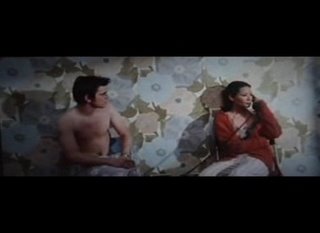Review: Lucky Number Slevin
 There is a certain formula to film noir, that must be followed, in order to successfully drag the audience into it's murky depths. First of all, the hero, played in Lucky Number Slevin by former heart-throb Josh Hartnett. I say former because his position, once cemented by roles in Pearl Harbor and 40 Days and 40 Nights, has been usurped by new people, like Paul Walker and Jake Gyllenhaal. The noir hero must be a regular guy who steps into the wrong place at the wrong time, and is propelled into the middle of a Class-5 s#¡tstorm by forces beyond his control.
There is a certain formula to film noir, that must be followed, in order to successfully drag the audience into it's murky depths. First of all, the hero, played in Lucky Number Slevin by former heart-throb Josh Hartnett. I say former because his position, once cemented by roles in Pearl Harbor and 40 Days and 40 Nights, has been usurped by new people, like Paul Walker and Jake Gyllenhaal. The noir hero must be a regular guy who steps into the wrong place at the wrong time, and is propelled into the middle of a Class-5 s#¡tstorm by forces beyond his control.In this case, the regular guy is Slevin, a man who just got into town to visit his buddy after a rough patch at home. The wrong place is the apartment of his buddy, Nick Fisher, who is nowhere to be found. The wrong time is when the bad guys show up to see Nick about some debts that need to be repaid. The storm is that there are two competing mafioso's in the neighborhood, that both need something from Mr. Fisher, who in both cases will be played by Slevin. The uncontrolled forces are as follows: The Boss, played by Morgan Freeman, whose son has just been assassinated, and is calling in a favour from our Slevin to avenge said murder; The Rabbi, played by Ben Kingsley, is thought to be the source of the aforementioned hit, and is looking for the monetary repayment of some gambling debts; Goodkat, played by Bruce Willis, a hired gun who appears to be the mastermind to the goings on, and the reason for Slevin's involvement; and Det. Brikowski (a name exclusively held for detectives), played by Stanley Tucci, just trying to piece things together before they spin out of control, which of course is impossible. The next part of the noir formula, is the follow-the-bouncing-plot storyline, where things happen, but they didn't really happen, or did they? Where events play out, and the audience is left to scratch to heads until they do the final last five minute flashback to all the things we didn't get to see so the ending makes sense. It can be frustrating to watch such a movie with someone who doesn't always follow along as closely as you, because you will constantly be asked, "Wait, wasn't he dead? I thought he was a good guy. What just happened?" The plotlines need to be dark, preferably about the depths people sink to when they have to, usually involving murder, always involving some seemingly normal person trying to survive in an unforgiving world. Another line on the noir checklist is the witty dialogue. It needs to be needlessly clever and overly dramatic, like Slevin's answer to the question "What are you gonna say?": "I'm gonna say what any man with two penises would say when his tailor asks him if he dresses to the right or to the left. Yes." Or Morgan Freeman's, "You come in here shooting your mouth off like you don't give a f--k if it gets shot off."
The other noir neccessity is the look of the film. Dark angular shadows should permeate even in broad daylight, faces should appear suddenly out of darkness as though they had materialized out of thin air. Camera angle should keep the viewer on their toes, as people are seen from below, high above, in profile, just facial features or have whole scenes cropped over to one side, so the rest of the frame is seemingly empty. They love that one. This movie is a bit hard on the eyes sometimes with constant reminders that the set decorator apparantly hates people, and wants them to go blind. The film is full of wallpaper designs that strained and maligned my peepers, which are bad enough as it is, without putting optical illusions on all the walls.
So, as far as film noir goes, Lucky Number Slevin hits all the bases. It makes a fine addition to recent noir films as L.A. Confidential or Memento. But make no mistake that you'd be walking into the next Chinatown or Sunset Boulevard, because it ain't there yet, sweetheart.
∆∆∆ of 5


0 Comments:
Post a Comment
<< Home